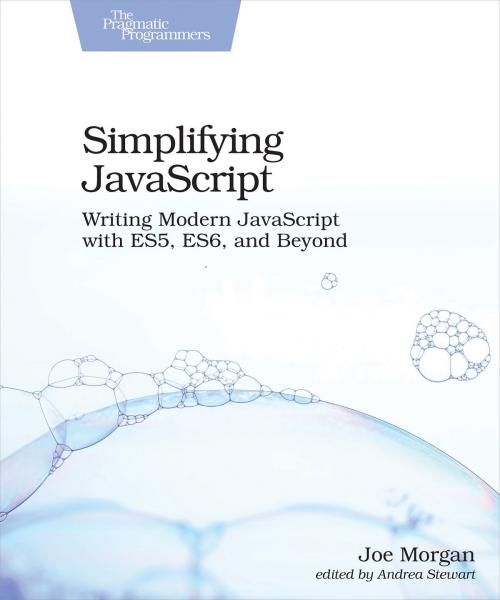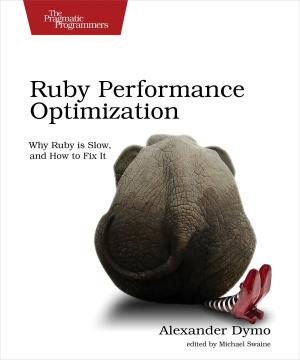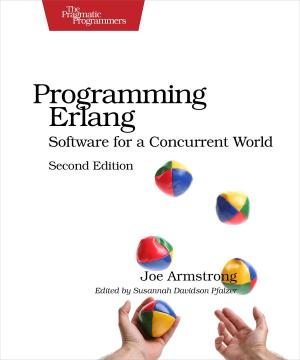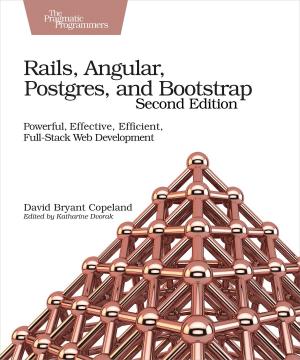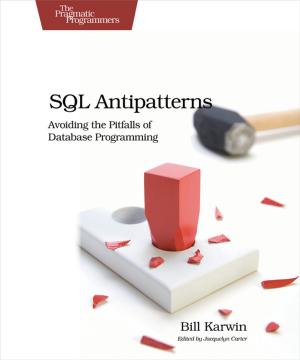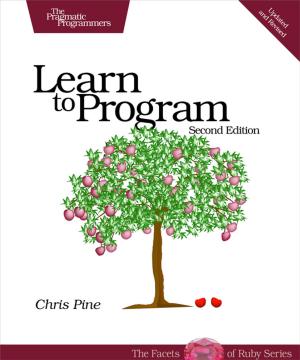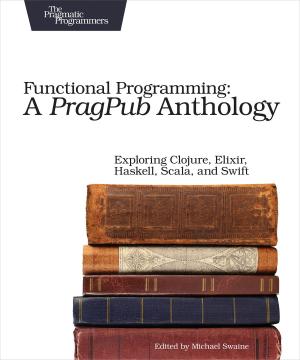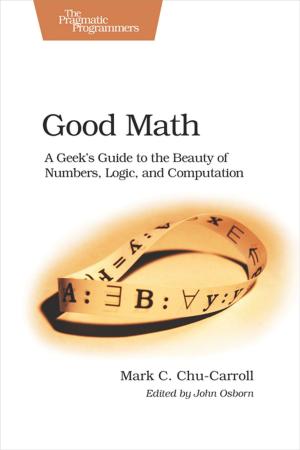Simplifying JavaScript
Writing Modern JavaScript with ES5, ES6, and Beyond
Nonfiction, Computers, Programming, Programming Languages, CGI, JavaScript, Perl, VBScript, Internet, Web Development| Author: | Joe Morgan | ISBN: | 9781680506051 |
| Publisher: | Pragmatic Bookshelf | Publication: | April 17, 2018 |
| Imprint: | Pragmatic Bookshelf | Language: | English |
| Author: | Joe Morgan |
| ISBN: | 9781680506051 |
| Publisher: | Pragmatic Bookshelf |
| Publication: | April 17, 2018 |
| Imprint: | Pragmatic Bookshelf |
| Language: | English |
The best modern JavaScript is simple, readable, and predictable. Learn to write modern JavaScript not by memorizing a list of new syntax, but with practical examples of how syntax changes can make code more expressive. Starting from variable declarations that communicate intention clearly, see how modern principles can improve all parts of code. Incorporate ideas with curried functions, array methods, classes, and more to create code that does more with less while yielding fewer bugs.
It's time to write JavaScript code that's clean and exprssive. Modern JavaScript is simpler and more predictable and readable than ever. Discover how to write better code with clear examples using principles that show how updated syntax can make code better with fewer bugs.
Starting from the ground up, learn new syntax (or how to reuse older syntax) to transform code from clunky bug-susceptible scripts to clear and elegant programs that are easy to read and easy to extend.
Create a foundation for readable code with simple variable declarations that reduce side effects and subtle bugs. Select collections with clear goals instead of defaulting to objects or arrays. See how to simplify iterations from complex loops to single line array methods. Master techniques for writing flexible and solid code ranging from high-order functions, to reusableclasses, to patterns for architecting large applications creating applications that will last while through rounds of refactoring and changing requirements.
The best part is there's no need to read this book straight through. Jump around and incorporate new functionality at will. Most importantly, understand not just what the new syntax is, but when and how to use it. Start writing better code from the first page.
What You Need:
For the best experience, have the latest version of Node installed (at least version 7). You can test most examples in the console of Chrome or other modern web browser. If you'd like to run the tests, you'll also need to install the latest version of Node Package Manager (npm).
The best modern JavaScript is simple, readable, and predictable. Learn to write modern JavaScript not by memorizing a list of new syntax, but with practical examples of how syntax changes can make code more expressive. Starting from variable declarations that communicate intention clearly, see how modern principles can improve all parts of code. Incorporate ideas with curried functions, array methods, classes, and more to create code that does more with less while yielding fewer bugs.
It's time to write JavaScript code that's clean and exprssive. Modern JavaScript is simpler and more predictable and readable than ever. Discover how to write better code with clear examples using principles that show how updated syntax can make code better with fewer bugs.
Starting from the ground up, learn new syntax (or how to reuse older syntax) to transform code from clunky bug-susceptible scripts to clear and elegant programs that are easy to read and easy to extend.
Create a foundation for readable code with simple variable declarations that reduce side effects and subtle bugs. Select collections with clear goals instead of defaulting to objects or arrays. See how to simplify iterations from complex loops to single line array methods. Master techniques for writing flexible and solid code ranging from high-order functions, to reusableclasses, to patterns for architecting large applications creating applications that will last while through rounds of refactoring and changing requirements.
The best part is there's no need to read this book straight through. Jump around and incorporate new functionality at will. Most importantly, understand not just what the new syntax is, but when and how to use it. Start writing better code from the first page.
What You Need:
For the best experience, have the latest version of Node installed (at least version 7). You can test most examples in the console of Chrome or other modern web browser. If you'd like to run the tests, you'll also need to install the latest version of Node Package Manager (npm).
